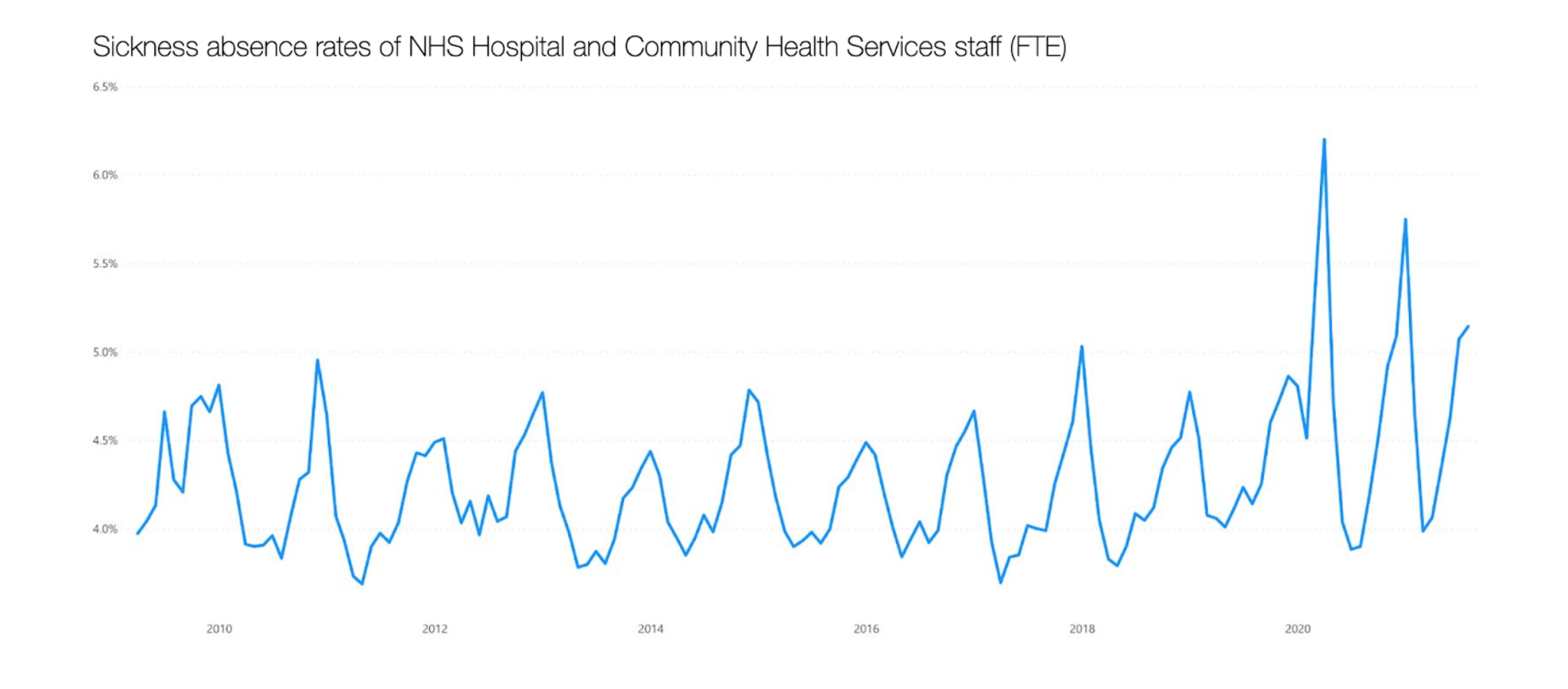
Can the NHS Workforce Ever Recover?
‘Elective recovery’ is at the front of everyone’s minds but without workforce recovery, we’re fighting a losing battle. Healthcare staff are bearing the brunt of the pandemic, even more so now than ever. Omicron may be milder, but it is sending staff into isolation in droves; those not isolating are left scrambling to pick up the appointments of their absent colleagues. The strain of constantly wearing PPE and taking extensive covid safety precautions is taking its toll.
Investing in the workforce is one of NHS England’s priorities for 2022/23, and that investment cannot come soon enough.

Trusts are working hard to offer staff support, but there is only so much they can do. The staff that are struggling the most are likely to be the ones who do not have time available to access the resources Trusts have laid out for them; those who are exhausted and burnt out may be in dire need of counselling but they are the least likely to have the hours to spare.
On top of this, there have been staffing gaps; recruitment is at a critical point. Mental health teams in central London that were previously the most popular places to work are seeing staff leaving in droves. Where these posts once attracted huge swathes of applicants, the London weighting is no longer appealing enough against the backdrop of the pandemic. Having robust recruitment systems in place to counteract this is vital. As a sector, we need to think about what sustainable recruitment and staff support truly look like.

Attendance is currently suffering at the hands of Omicron but, after nearly 2 years of strain, there are likely other underlying causes of the current surge in absences.
On January 2nd there were 82,384 staff absences – of those, 39,142 absences were due to COVID-19 sickness or isolation. While the number of COVID absences here is vast, the number of non-covid absences is even larger. Improving attendance will require addressing the root causes of non-COVID-related absences and better supporting staff to return to work.
Improving staff retention is not simply a question of investing more money (though that would not go amiss), it is a question of taking time to understand the needs of staff as individuals. A focus on flexible working arrangements and candid early/mid/late career conversations could help support staff wellbeing and, ultimately, improve retention.

Fostering environments in which staff feel able to access help is vital, but it has erroneously slid down the list of priorities amidst the challenges of the pandemic. Refocusing on this will be an integral part of supporting the NHS workforce as we near the 2 year anniversary of the first cases of COVID-19 arriving in the UK.
Efforts to support staff will, in turn, help NHS England meet another goal on their list for 2022: respond to COVID-19 more effectively. To gain comprehensive insight into potential future workforce challenges and identify issues before they arise, we welcome you to get in touch at info@realworld.health for a free trial of our Data Science Platform (DSP).
